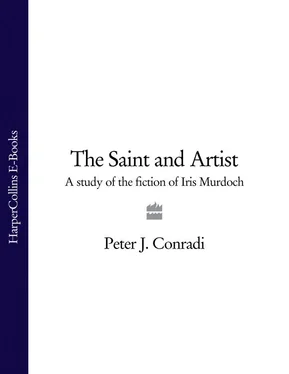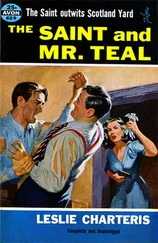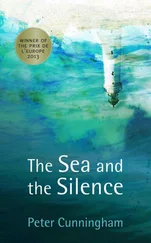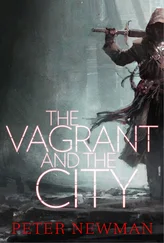Equality of opportunity produces, not a society of equals, but a society in which the class division is made more sinister by the removal of intelligent persons into the bureaucracy and the destruction of their roots and characteristics as members of the mass. (ht)
This middle-class intelligentsia broadly provided her material. ‘Barkers people not Harrods people,’ as one of her characters notes (AM 27), though the spread moves upward on occasion. Murdoch’s father was a civil servant, and during the war years so was she. As in so many Russian novels, bureaucrats abound, though tempered with members of genteel and other professions – schoolteachers, wine-merchants, printers, rose-growers. Just as Britain has recently become more socially divided, so the world she addressed has appeared more beleaguered and isolated. The loftiest apology for this social range is made by Bradley Pearson in The Black Prince when he points out that a truly enlightened person might perhaps be known by his sympathy’s extending even as far as the rich ( BP 348). Pearson himself, like Burde in A Word Child and Arrowby in The Sea, The Sea, is the child of a poor family.
Perhaps in the end – and this will be truer of contemporary writers than of any others – ‘a philosopher’s thought either suits you or it doesn’t. It’s only deep in that sense. Like a novel,’ as the dying Guy puts it in Nuns and Soldiers (2). Qualities such as facility, the capacity to rework a few themes, and conscious stylisation, can be as characteristic of great as of small writers – it is as proper to speak of the facility of a Shakespeare as of a Wodehouse.
It has not been enough repeated that Iris Murdoch was, as well as a very witty writer, also a consistently funny one, and that this humour was linked to her moral passion. Taine remarked of Dickens that his whole work might be reduced to the phrase ‘Be good, and love.’ 7 So might Murdoch’s oeuvre. Both attack human self-centredness. That human beings are powered by egoism is not by itself, however, exciting news. The problem for the critic is in describing not just this message, but how it gets ‘dissolved in the purr of beatitude’ 8 the work promotes in us, and in describing the comic tension between that message, and everything in the work which resists and complicates it. She admired in Shakespeare’s plays not merely their ‘tremendous moral charge’ but also that ‘it is morality at its most refined, and at the same time it is not dogmatic, it has got an element of extraordinary openness in it’ (Bigsby, 1982). The author of these twenty-six novels seems to have seen life with one eye warm if not wet, one dry and distant, and perhaps narrated by two positives. There is in her mediation between these a sanity, a cheerful common sense, a gift for openness and for comedy, that need emphasising at the outset.
Iris Murdoch was born in Dublin in 1919, of Anglo-Irish parents. *; Her mother’s family were from Dublin, her father’s were County Down sheep-farming stock. Her mother gave up a career as a singer to marry at eighteen. Her gentle bookish father had survived the war partly through the good luck of being a cavalry officer – the cavalry missed the holocaust of the trenches. Further back her ancestors were mainly Irish farmers and soldiers. She had a very happy childhood, and was brought up in London, to which her parents moved when she was a baby, but with holidays in Ireland, and seeing Ireland as ‘a very romantic land, a land I wanted to get to and discover’ (Caen, 1978). Her father’s family were ‘admirable people, but Protestants of a very strict kind, and I think he wanted to get away’ (Haffenden, 1983). The Anglo-Irish are a peculiar people, from whose stock some most gifted writers have come, but also a people with a dual identity, seeing themselves in some sense as both the true Irish and the true English, while being regarded by everyone else as neither, and as outsiders. About growing up in London Murdoch commented, ‘I feel as I grow older that we were wanderers, and I’veonly recently realised that I’m a kind of exile, a displaced person. I identify with exiles’ (Haffenden, 1983). Perhaps Ireland provided her in her imagination with an absent, alternative identity. She spoke often of her distress at the continuing violence there, and Ireland figured significantly in only two novels – The Unicorn, which is a Gothic romance set on the west coast, and The Red and the Green, an account of the 1916 Easter Rising which combines detailed research into the period with an intricate plot, and where the sexual imbroglio within an extended Anglo-Irish family partly mirrors the political tensions. The political viewpoint of the book, in so far as it commits itself to one, is that of the liberal Irish patriotism of the Anglo-Irish, who have of course often been zealots in that cause.
Murdoch was an only child, and has related her writing drive to the search for imaginary brothers and sisters, as she also saw in this a reason for her (and Sartre’s) fascination with twins – ‘the lost, the other person one is looking for’ (Caen, 1978). She was educated at the Froebel Educational Institute in London, at Badminton School, then at Somerville College, Oxford, where she read ‘Greats’ (ancient history, classics, philosophy). Her knowledge and love of the classics, and of classical mythology, are evident throughout the novels, where such myths are sometimes played with and made to help yield decoration for the plot. From 1942 to 1944 she worked as temporary wartime civil servant (Assistant Principal) in the Treasury, and then for the following two years with the United Nations Relief and Rehabilitation Administration, first in London, then in Belgium and Austria, where she worked in camps for displaced persons.
Her period with UNRRA seems to have been important for two reasons. In Brussels she encountered existentialism, which excited her about the possibilities, hitherto little considered, of philosophy. In 1947 she was to hold the Sarah Smithson Studentship in philosophy at Newnham College, Cambridge. She also saw a ‘total breakdown of human society’ which she has said it was instructive to witness (Haffenden, 1983). These two encounters now seem less far apart than might appear. This breakdown of society produced the refugees and homeless persons who figure in Murdoch’s novels, as in history, and Sartrian existentialism was a philosophy that privileged the cultureless outsider hero. The role of existentialism in her thinking has not been well focused. It has sometimes been said that she moved from existentialism towards a religious position. This makes for a difficulty in discerning her right relation to existentialism, by which I mean Sartrian existentialism throughout, since that was the form which most interested her. In interview with Bigsby (1982) she suggested that her objections went right back to her first encounter with it in 1945. Her scepticism as well as her interest is quite apparent before her first novel was published in 1954, and her book on Sartre the previous year, though respectful, is scarcely uncritical. What excited her about it was the primary place it gave to a consideration and depiction of experience, a subject then absent from Anglo-Saxon philosophy, and its comparative willingness to tackle problems of value and morality. It was the phenomenological and moral bias of the existentialists that excited her, and she was one of the few English philosophers to have read them. In Britain there had been a disastrous shrinking of the field of moral philosophy to, for example, discussions of the ontological status of moral assertions, and an abdication of the responsibility to guide and instruct.
Philosophy seems to have come to matter to her, for all its clear difference from literature, for comparable reasons, because ‘a dominant philosophy pictures the consciousness of the age’ (sbr), and because man is the creature who ‘makes pictures of himself and then comes to resemble the pictures’ (me). She came to distrust Sartrian existentialism and British philosophy equally, and to see them as sharing a common ground in offering no barrier to romantic selfassertion. In a radio talk in 1950 she criticised both Sartre and Camus for presenting worlds which were simultaneously too intelligible and transparent, and also too lacking (unlike the world of Gabriel Marcel) in mystery – in which category she included nightmarish mystery – and magic. ‘This fact alone, that there is no mystery, would falsify their claims to be true pictures of the situation of man…We are not yet resigned to absurdity and our only salvation lies in not becoming resigned’ (eh). The same year she asked, à propos Simone de Beauvoir’s championing of T.E. Lawrence as an existentialist hero, ‘Should he be taken as the model of the “good man” for this age?’ 9 In a sense this question resonates throughout her writing, and its very subversive simplicity rightly disturbs us. What man are we being asked to admire in this novel or in that philosophy? And are the reasons just? By 1957 in a Spectator review she noted that the appeal of existentialism was its dramatic, solipsistic, romantic and anti-social exaltation of the individual. 10 If the central question she was later to ask in The Sovereignty of Good – what is it that might ‘lead to unselfish behaviour in the concentration camp?’ (73) – has any answer, it is not the ‘instantaneous’ values of the existentialist hero or of his Anglo-Saxon voluntarist counterpart. It is no accident that the plots of her novels until 1970 often concern the disruption of a court of settled, rooted English grands bourgeois by displaced persons and refugees. The theme is of course as old as Jane Austen, but Murdoch makes her own special use of it. She has written both of the ‘phenomenal luck of our English-speaking societies’ and, in the same article (sbr), of how such luck may obscure deep truth. These outsiders – the Lusiewicz twins and Mischa Fox in The Flight from the Enchanter, the Levkins in The Italian Girl, Honor Klein and Palmer Anderson in A Severed Head, Julius King in A Fairly Honourable Defeat – may sometimes appear as twentieth-century versions of the sentimental or demonic egoists whose irruption into the innocent provincial redoubt Austen chronicled. 11 They as often, however, reveal the ‘deep truth’ hidden behind polite English manners.
Читать дальше












